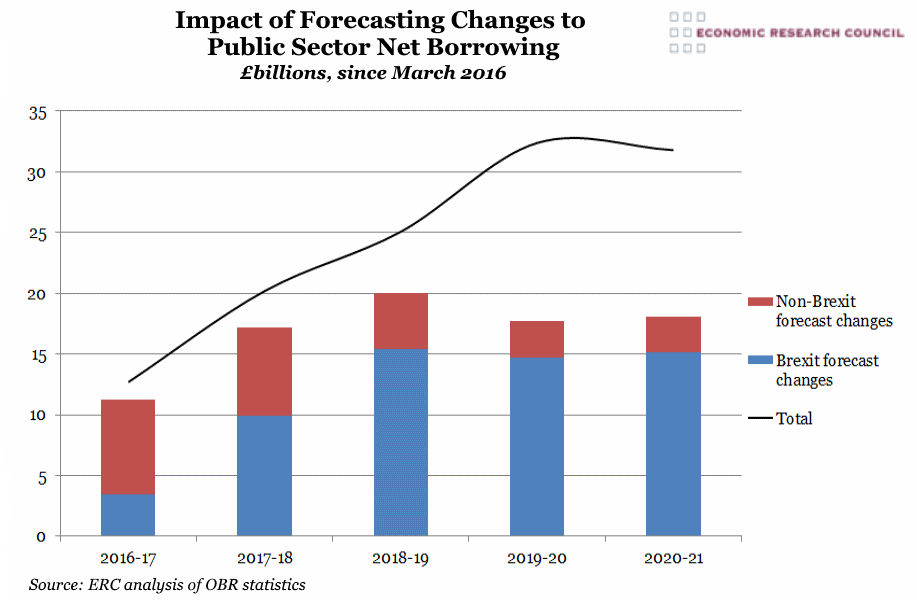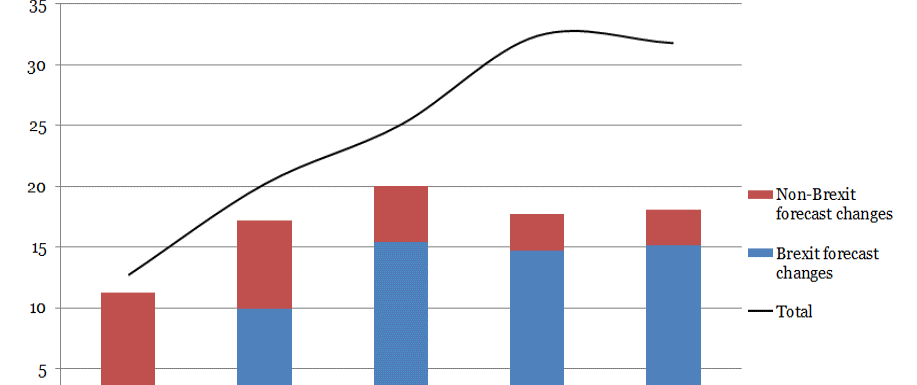
Summary
The Office for Budget Responsibility has projected that the Brexit bill will be £60bn over the next five years as a result of lower growth and weaker tax returns. Optimism in forecasts unrelated to Brexit will have a bigger effect than Brexit in the short term by adding £7.8bn to public sector borrowing in 2016/17. This then falls to £4.6bn in 2018/19 and continues to decline. This is in contrast to the impact of Brexit, the cost of which the OBR projects will climb from £3bn in the coming year to around £15bn annually in 2018-2021.
What does the chart show?
The blue bars on the chart show the impact of Brexit-related forecast changes on net borrowing by the public sector, whereas the red bars reflect the impact of forecasting changes that are unrelated to the referendum. The black line is the total impact of these forecasting changes combined with the impact of government spending decisions and classification changes. The data is from March 2016 and is in billions of pounds.
Why is the chart interesting?
The chart demonstrates not only the magnitude of these revisions in forecasting but the anticipated timing of their impact on public sector net borrowing. The change in earlier optimism from the OBR was blamed, as ever, on the future being highly uncertain, particularly when estimates are reliant on government policy which is often drastically changeable.
The chart shows that half of the total increase in public borrowing is related to Brexit, which has been controversial with those in Parliament who hold a rosier outlook on the UK’s departure from the EU. The OBR attribute a portion of the Brexit bill in part to lower migration, which they anticipate will add £1.9bn to public borrowing in 2017/18 and rise steadily to £5.9bn by 2020/21.
Another significant factor is the anticipated rise in inflation, which they state will add between £2-3bn annually for the next five years. Although the scale of this revision is large (£120bn upwards) in comparison with most historically, it remains dwarfed by the OBR’s massive revisions in the autumns of 2011 and 2012. The OBR has exercised caution however, with their chairman accepting in a recent interview that ‘forecasts are always wrong’.

